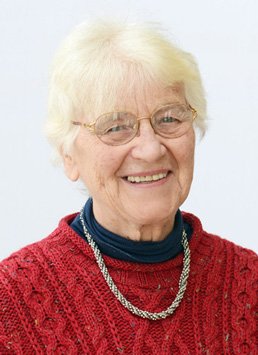Society for the Study of Women Philosophers, Inc.
a non-profit, tax-exempt educational charity 501(c)3 Internal Revenue Code
Asnat Barzani (Asenath Barzani)
circa 1590
Talmudic Scholar, Feminist
|
Kate Lindemann's Women Philosophers pages |
 |
Remember!! Your purchase of books by clicking on Abe Books or Amazon links through this site earns us a small commission that is used to provide travel scholarships. |
Asnat Barzani (Asenath Barzani) was born in the mountains of Kurdistan, an area bounded by Iran, Iraq and Turkey. At one time this was the home of vibrant Jewish community, descendants from those exiled by the Assyrian King Shalmaneser I around 850 BCE. These Jewish deportees tried to fit in with the Kurds. After the conversion of Queen Helene of Adiabline, many Kurds in the region converted to Judaism.
The Jewish community in Kurdistan was known for its generosity. During the conquest of Judea and Samaria by the Romans in 68 - 67 CE, the Jews of Kurdistan sent provisions and troops to aid the besieged and they sent food to Jerusalem during the famous famine in the city.
The community had its own music, food and religious poetry and legends. Members were bilingual; they spoke both Suriy and Kurdish. By the 16th century, the community was quite poor. Most members were subsistence farmers, craftspeople, merchants or peddlers. The center of the cultural life was the synagogue, the Hebrew school and the yeshiva. Marriage was contained within the community and so the community was bonded by ties of blood as well as religion.
Among these Kurdish Jews there were two important community figures: a nasi whose job it was to raise taxes and a community hakham or sage who served as tribal educator, scribe, writer of amultest, cantor and ritual butcher.
Asnat Barzan (Asenath Barzani) was born in 1590 CE. Her father, Samuel Ben Nathanel Halevi Barzani, was well known for his scholarship and piety. Although he was not the community nasi nor its hakham, he was an acknowledged leader in the community. He was much dedicated to education and traveled from town to town to establish yeshiviot. When he was not traveling, he spent much time educating his daughter Asnat Barzan (Asenath Barzani). she was taught to study, memorize and contemplate the holy words as a way to direct contact with Wisdom (God).
To ensure that she had enough time and attention for study, her life was quite sheltered. She studied, contemplated and did not do domestic work or take part in the usual daily social tasks of many girls and women of her age.
Rabbi Tirzah Firestone reports Asnat Barzani (Asenath
Barzani) as writing, "Never in my life did I step
outside my home. I was the daughter of the king of Israel...I was raised
by scholars; I was pampered by my late father. He taught me no art or
craft other than heavenly matters."
See: Rabbi Tirzah Firestone, The Receiving: Recovering Feminine Wisdom p. 112.
Asnat Barzani (Asenath Barzani) was betrothed to a cousin named Jacob ben Abraham. Realizing that marriage might force his daughter out of her role as a wise woman, her father required that her wedding document include the stipulation that his daughter 'must never be troubled by housework'!
The couple had two children, a boy and a girl. Jacob took over her father's yeshiva in Mosul and it appears that she was a major teacher in the yeshiva. But Jacob died early and rather than close the school Asnat Barzani (Asenath Barzani) took over as director. It appears that she was the first Rosh Yeshiva dean and head teacher in a men's Talmudic academy of all in Jewish history.
Their economic struggle was sharp. At one point creditors took her home and sold her clothes and those of her daughter. However, she persevered. When he son came of age, he took over as the school's dean and fund raiser. .
Tradition has preserved many stories of Asnat Barzani's (Asenath Barzani's) powers. However we have few of her words. Perhaps a testament to the poverty that prevented the preservation of texts.
We do have a single letter. I cite only its opening:
"I'll speak for the Learning and moan for its vanishing from my land, For the brilliant spark in a cloud of heaven has hidden from my people..."
I believe that this woman gives hope and a role model to young and older women who really treasure study and learning - even to the neglect of mundane housework. The intellectual life can be a true calling of women as well as men. And there is a long tradition of women who lived an intellectual life in the world.
If you want to read more you can use this link: Asnat Barzani, Asenath Barzani from the Jewish Encyclopedia.
This page was updated January 10, 2015.
Society for the Study of Women Philosophers